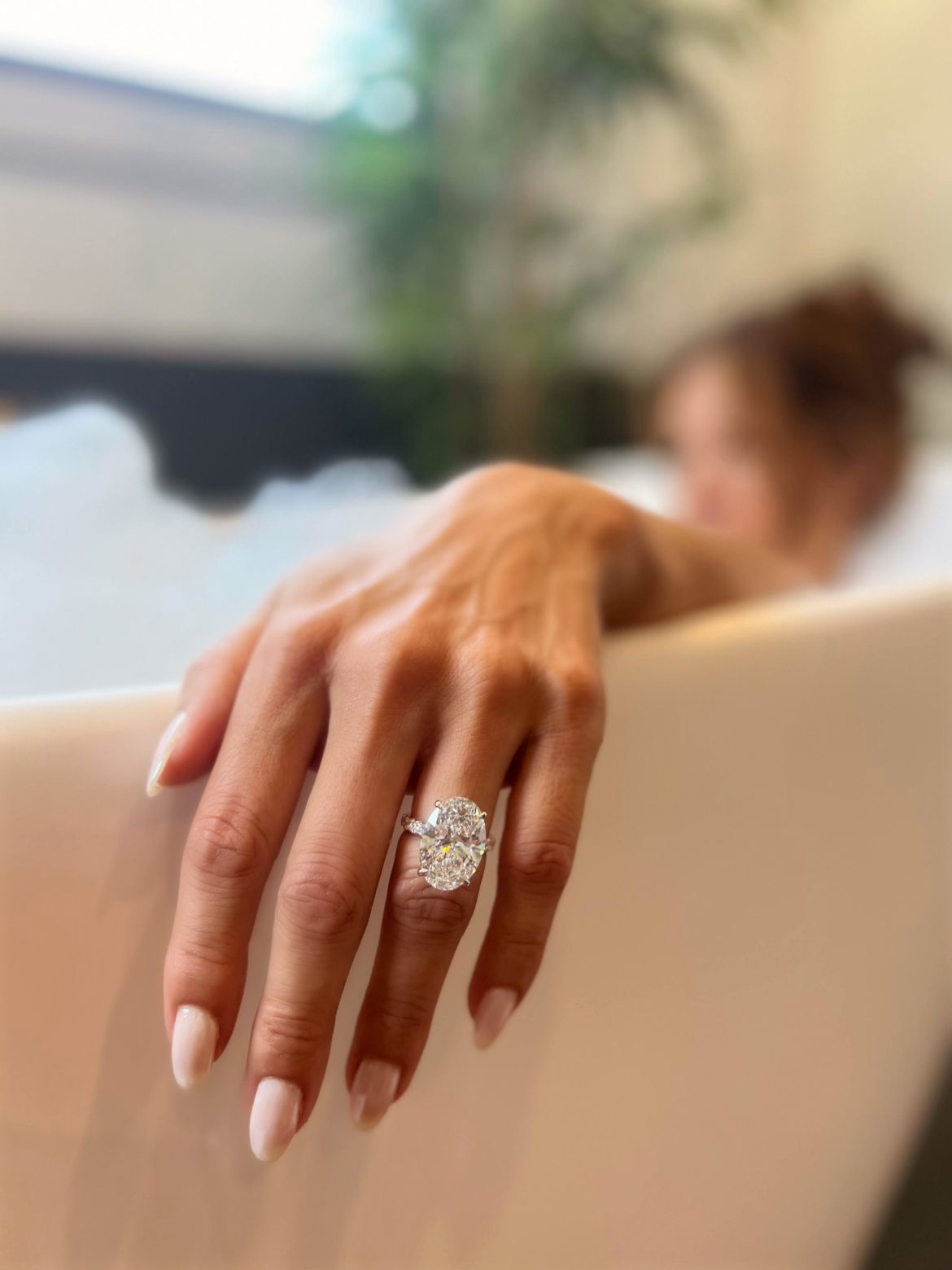When it comes to choosing the perfect metal for your engagement ring, look no further than 19k white gold and platinum. These metals exude elegance and luxury, but they come with distinct characteristics. Let’s delve into the nuances of 19k white gold and platinum to help you make an informed decision for your next cherished piece.
The Composition
19k white gold is a blend of gold, alloyed with other metals. In this case, it contains 79% pure gold, mixed with a combination of alloys such as silver, palladium, nickel, or zinc. The result is a stunning, lustrous metal that showcases a bright, silvery-white finish. Not many jewelers work with this metal type which could make it more difficult to have your ring serviced, sized, or repaired.
Platinum is a naturally white metal, known for its purity and rarity. When used in jewelry, it’s typically 95% pure, making it one of the purest metals used for adornments.
Durability and Wear
19k white gold is a harder metal and is scratch-resistant compared to platinum. 19k white gold has a glossy finish that reflects light, making this metal type look bright. Over time, the finish on this metal type will become matte. This finish will be restored to its original state during a standard servicing by a skilled jeweler. This service would include cleaning, tightening of prongs, and polishing, which does cause metal loss. Rhodium plating is a hard coating that may be used to prolong the shine of your 19k white gold engagement ring.
Platinum stands out for its exceptional durability. It’s significantly denser than gold, which means it’s less prone to wearing down over time. This makes it an ideal choice for pieces that will be worn daily. Platinum is a softer metal, making it more susceptible to scratching and movement. Having your platinum engagement ring serviced by a skilled jeweler will restore your piece to its original state, without metal loss. Platinum will start off bright and white; however, over time it will develop a patina finish with wear and will appear grey. Platinum is best for diamond engagement ring settings, such as a pavé or halo setting, that have tiny prongs around smaller diamonds and center stones, because it does not demonstrate metal loss. Due to its soft form it it actually flattens and conforms to the stone it’s holding. A skilled jeweler will reform the prongs to their original shape during a standard servicing.
Affordability
19k white gold has a higher metal content and is mixed with expensive alloys, therefore, making it more expensive per gram than 14 and 18k white gold and platinum. Platinum is 60% denser than white gold. Therefore, a platinum engagement ring will weigh more than if it were made with 19k white gold. 19k white gold is not widely produced, and platinum is rare. These factors have made the price for these 2 metal choices very similar.
Making the Choice
Should you choose 19k white gold or platinum for your engagement ring? Overall, 19k white gold engagement rings maintain a brilliant, bright appearance for longer; however, they will experience metal loss over time. Platinum engagement rings will lose their silvery sheen more quickly, but they will not experience metal loss. If you’re looking for an engagement ring that will be worn daily, platinum’s durability may be the deciding factor. It withstands the rigors of everyday wear and can be passed down for generations.
Whichever you choose, both 19k white gold and platinum engagement rings are timeless and will be cherished.

